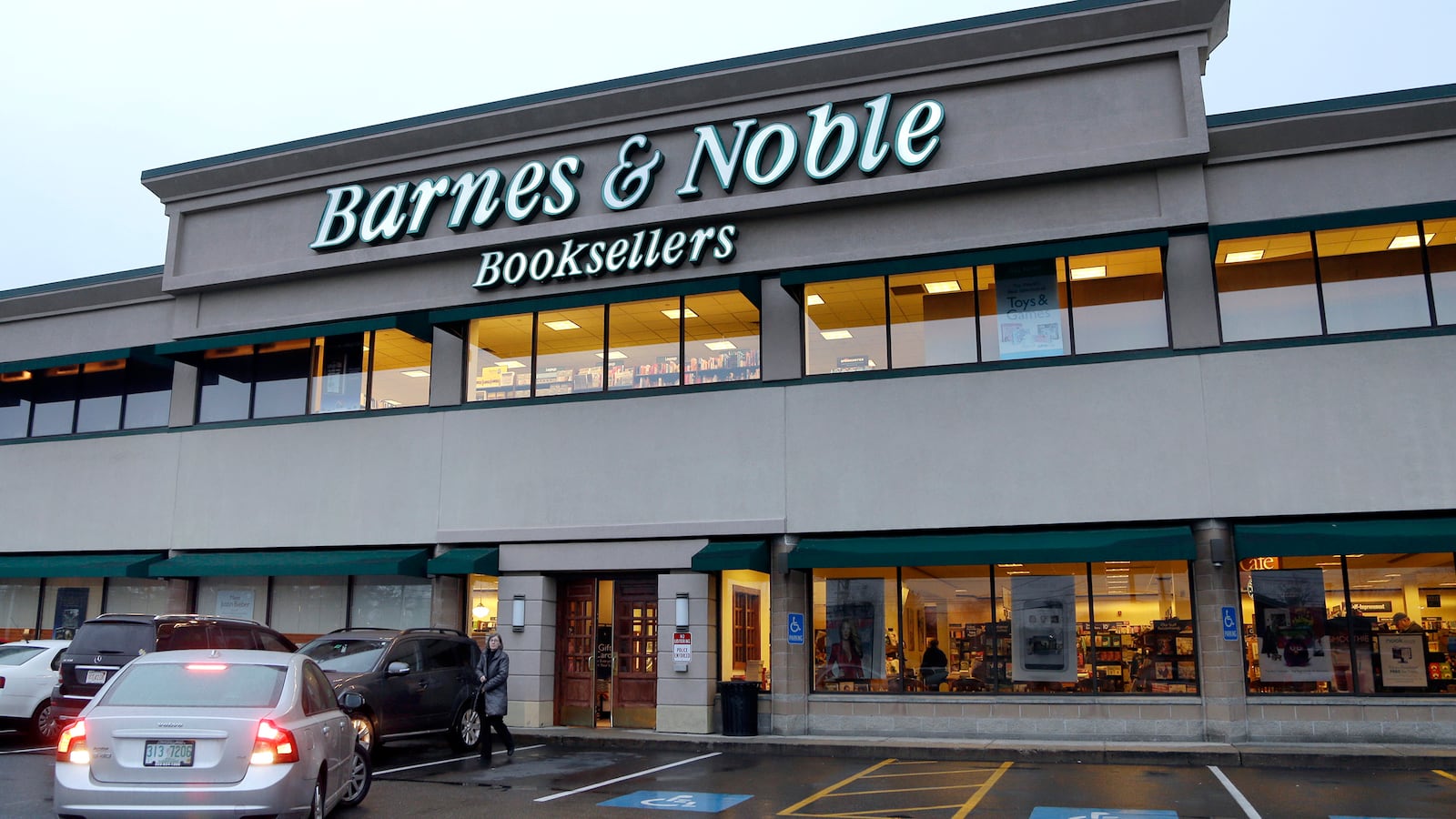The Random House and Penguin merger has gone through. The Barnes & Noble CEO, lauded for his advocacy of Nook, has just resigned. Apple has been found guilty of e-book price-fixing. There is more than ever a glut of mediocre books, while authors, readers, booksellers, and just about everyone else involved in the book industry is unhappy.

Do you like going into a Barnes & Noble and shelling out $30 for a book the store has decided is good for you, which is why it’s front and center and screaming for your attention? On the way out you’re greeted by a wall of discounted cookbooks and illustrated travel books no one wants. It’s a little different at the independent bookstore—if you have any left in your town—but you’re still limited by the top-down model of publishing, which decides what is written and what you should read. Not being part of a literary community, you determine what to read—by the day’s Franzen or Egan—according to reviews and awards.
This model of literary production is doomed. The idea that there should be centralized, massively consolidated, bureaucratic organizations known as the major trade houses, with multiple layers of editors, vast publicity departments, and books fed to them by an entity known as literary agents, only to take repeated losses and rely on a few stars to help them break even, is bound for extinction.
Is the current publishing model salvageable? Or is it time to scrap everything and start over? If book publishing is to survive, something drastic will have to occur. The technology already exists to make publishing a democratic venture, driven from the bottom up rather than the other way around.
The discussion of the crisis of publishing persists mostly at a pedestrian level. The alternatives offered are minor fixes, taking existing production, distribution, and consumption methodologies for granted. We don’t need to figure out how to maximize sales with the latest e-reader. We need to reconceive the concepts of writing, editing, and reading, and subject every institutional component to radical critique. It isn’t a question of which reading device is best, or how publishers will make up for the loss of Borders, or how they can squeeze more money out of the present distribution model.
The crisis of publishing is really the crisis of writing and reading. The publishing industry today generally obstructs the free flow of energies between readers and writers. It is a broker for celebrity authors, taking the entire literary culture on a downward slope because the definition of “commercial” is constantly being dumbed down. Hence, cookie-cutter books, formulaic sensations, highly publicized advances, the anachronistic book tour, and literary stars with all the trappings of their brethren in the movie and fashion industries. Rather than pushing more of the product that publishers already offer, the nature of the product itself must change. Yes, there is a crisis in publishing, but this is good because it means that the public isn’t buying the hype.
The structures of distribution are not written in stone—why must there be so many intermediate layers that the final product must survive to make itself visible? With that in mind, I propose the following key principles for a major restructuring of the publishing industry:
1. Decentralization
Even within existing economic and social conditions, it makes no sense to have giant conglomerates located in grand isolation in New York and making all the major decisions about publishing.
Decentralization should cover every aspect of publishing, including acquisition. The big publishers are going to have to break up into smaller units, and address the real needs of real markets, not cater to advertising-created images of “national” readers. Regionalism in publishing can be a great spur to revitalization of reading.
To some extent, what I’m calling for is already being followed by independent literary presses and the best among the university presses, except it would be on a far more radical scale. The elite gatekeeping function of a highly centralized elite, with common educational and class backgrounds, is a barrier to the flourishing of vital writing.
All of the apparatuses of centralization need to be subject to reconsideration.
2. Autonomy
Instead of a literary product that results from every actor along the line—writer, editor, sales representative, reader—fulfilling his or her expected role in the continuum according to grand marketing plans and corporate strategies, each of these actors needs to be freed, in order to assume responsibility for the acts of writing, editing, selling, and reading.
This would mean, for example, that an editor edits again, instead of being an administrator who has farmed out his real work to sub-literate agents. It would mean that a writer reconceives himself as someone appealing to audiences that perhaps don’t fully exist yet but that might come into being with enough chutzpah; to cater to existing audiences, to write to constituencies that can be shown to exist, is the death of writing. It would mean that the sales function is broadly diffused across organizations so that it becomes a more organic imperative than a tyranny to which everyone must submit their visionary ideas. And it would mean that readers take responsibility for what they are reading, because they would be actively solicited as integral components of publishing, not remain as afterthoughts.
3. Responsiveness
Are readers dumb? Is the market an inert force to be manipulated and exploited, to deprive it of hard-earned cash? Are needs to be imposed from above, rather than felt from below? Such would definitely seem to be the mindset in this most elitist of New York–centered industries, and anyone can see the results.
With the hundreds of thousands of books being published each year, what is the net cultural contribution of publishers? The exceptions are the few truly innovative small presses and university presses (which of course don’t receive much notice from the mainstream reviewing establishment), while nearly everything of what the major trade houses put out is simply junk. These are not books I want to have on my shelf; these are not classics and books I can’t do without. These are creations of marketing strategies, the internalized focus group screaming in the writer’s and editor’s and sales representative’s head, instead of taking advantage of always-shifting possibilities for creation.
The best of the independent publishers are on the right track. My own experience with indie presses like NYQ Books, C&R Press, Black Lawrence Press, and others has invariably nourished and elevated my deepest creative needs. Many other indie presses—like Black Widow, Ugly Duckling, Omnidawn, Canarium, and Publishing Genius, to name just a few—strive to push the literary conversation ahead of existing conventions.
4. Smallness
Bigness is the bane of any creative or responsive activity, and publishing is no exception. There are simply too many books being produced by too many giant organizations that have little connection with reality anymore, except in terms of abstract conceptions of the reader and the marketplace.
The situation needs to evolve to the point of radical flatness within organizations, so that the editor in chief should be someone who sees himself as more or less on the same plane as the ordinary employee. Writing has become corrupted as a result of the pervasive hierarchies. The testaments of various successful authors today reveal that they too desire to be at the top of the hierarchy, on par with the highest people at the publishing firms, instead of visualizing themselves on the margins of the system, in tune but never quite belonging.
The bigness, as evident in the Penguin Random House merger, has reached obscene proportions.
5. Risk
The preceding disabilities prevent publishing houses from taking necessary risks.
In literary culture, risk is always overestimated. The safest thing is to go with the existing formula, which means that, like newspapers, the trade houses have become prone to offering few new ideas, lagging behind events, and reacting to them rather than offering exciting alternatives to burgeoning challenges.
Again, the best among the university presses like Princeton, Yale, Minnesota, Duke, Columbia, and others are a notable exception to this rule, because their mission and their process of acquisition and editing militates against the corrupted model of the major New York houses. They anticipate ideas with scholarly heft, rather than lag behind conventional wisdom as the big publishers do—such as on climate change.
Publishers would become profitable in short order if entrenched agents and editors weren’t allowed to have veto power over innovative proposals, running their jaded, cynical eyes over every hint of freshness, trained in being subservient lapdogs to master strategists holding the keys to the riches.
In short, writing needs to be reader and community driven, hierarchies need to be radically flattened, creativity needs to be diffused at the local level, and globalization needs to reactivate literary worth everywhere.
One can easily imagine a scenario where publishers’ retail outlets function in a mode akin to public libraries, becoming centers of exchange of ideas between authors, editors, and readers, as part of a global network of bottoms-up cultural dynamism. Books would not be status objects then but would derive from readerly needs, losing their fetish aspect and becoming transformable over time. The real price of most books—minus unnecessary overhead—probably ought to be between $2 to $5 today, if publishers take full advantage of global economies of scale rather than catering to restricted elite audiences. Technology is exerting tremendous pressure on making authors roaming and unbound, enhancing the ability to create both niche and broad audiences as elite gatekeepers lose prestige. Admittedly, a lot of undeserved cultural authority will have to erode before this idealization can materialize.
But more than likely, nothing substantial changes and we muddle along, except with new technologies lending momentary glamour to the diminished act of reading, creating the illusion of democracy, when in fact there is none. More than likely, the system continues as before, with corporate strategists, bloated editorial teams, and well-trained loyalists screening out the barbarians despite further economic deterioration.
If things don’t change, it’s not because the concepts, technology, or means aren’t there to make publishing exciting, profitable, and culturally worthwhile again; it’s because the overlords don’t want to change, even if it means they go down and take reading and writing with them. Forty-five years ago Roland Barthes and Michel Foucault, in their seminal essays on the death of the author, posited an open space for the reader to step in and drive the momentum forward; that was a radical challenge whose suppositions about authorship corporate publishers in America have done their best to thwart and suppress. And their job is just about finished.






